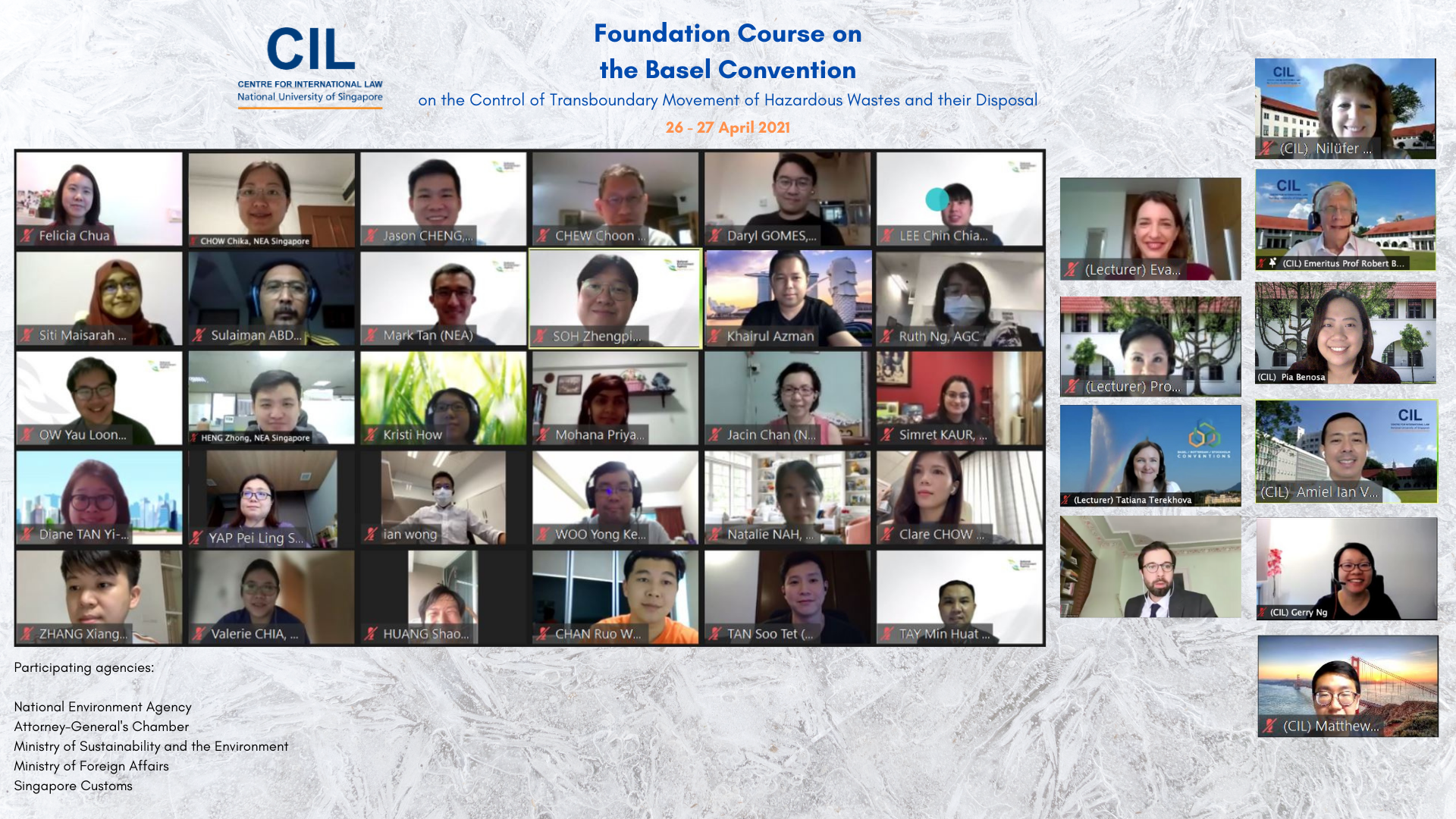Start
End
Basel Convention on the Control of Transboundary Movements of Hazardous Wastes and their Disposal

The Centre for International Law, in cooperation with the National Environment Agency (NEA), has successfully concluded a foundational course on the Basel Convention on the Control of Transboundary Movements of Hazardous Wastes and their Disposal. Held on 26 and 27 April 2021, the Course catered to government officials directly concerned with the implementation in Singapore of the Basel, Rotterdam and Stockholm (BRS) Conventions, the three major multilateral environmental agreements (MEAs) on managing the effects of pollutants on human health and the environment.
On Day 1, Ms Eva Duer of the UN Environment Programme discussed the origins and key provisions of the Basel Convention, its synergies with the Rotterdam and StockholmConventions, and the useful features of the InforMEA platform. Professor Lye Lin Heng of the NUS Faculty of Law focused on some aspects of the Basel Convention’s implementation in the region, and Singapore’s practice with respect to the BRS Conventions.
On Day 2, Ms Tatiana Terekhova from the BRS Secretariat provided participants a more in-depth look at the Basel Convention’s scope and definitions, and discussed how, following its entry into force, States have continued to introduce amendments thereto addressing the evolving and very present threats that wastes pose to human health and the environment. Finally, Mr Baskut Tuncak, former UN Special Rapporteur on Toxics and Human Rights, invited participants to reflect on the difficulties posed by waste electronics to the environment, in particular, States’ failure to manage their flow into a circular economy for recycling and the lack of data transparency thereon.
The foundational course was attended by participants from the NEA, Attorney General’s Chambers (AGC), Ministry of Sustainability and the Environment (MSE), Ministry of Foreign Affairs (MFA) and Singapore Customs, who all had the opportunity to apply their learnings through breakout discussions and interactive exercises.
CIL would like to thank Mr. Winston Chew, Head of NEA’s International Law Branch, for his tireless work in co-organising this course. We also extend our deepest appreciation to all the lecturers for sharing their valuable knowledge and time with the participants. Lastly, we sincerely thank the participants whose questions and comments enriched the course discussion.

